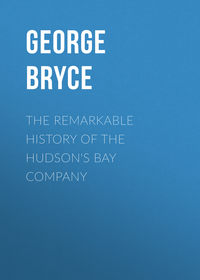Sadece Litres'te okuyun
Kitap dosya olarak indirilemez ancak uygulamamız üzerinden veya online olarak web sitemizden okunabilir.
Kitabı oku: «The Remarkable History of the Hudson's Bay Company», sayfa 19
Bir şeyler ters gitti, lütfen daha sonra tekrar deneyin
Türler ve etiketler
Yaş sınırı:
12+Litres'teki yayın tarihi:
01 ağustos 2017Hacim:
650 s. 18 illüstrasyonTelif hakkı:
Public Domain